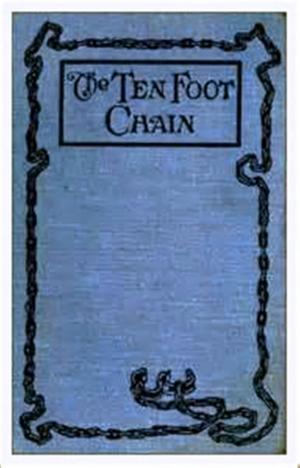| Author: | Rolf Boldrewood | ISBN: | 1230000141989 |
| Publisher: | WDS Publishing | Publication: | June 15, 2013 |
| Imprint: | Language: | English |
| Author: | Rolf Boldrewood |
| ISBN: | 1230000141989 |
| Publisher: | WDS Publishing |
| Publication: | June 15, 2013 |
| Imprint: | |
| Language: | English |
"Shearing commences to-morrow!" These apparently simple words were
spoken by Hugh Gordon, the manager of Anabanco station, in the district
of Riverina, in the colony of New South Wales, one Monday morning in
the month of August. The utterance had its importance to every member
of a rather extensive "CORPS DRAMATIQUE" awaiting the industrial drama
about to be performed.
A low sand-hill a few years since had looked out over a sea of grey
plains, covered partly with grass, partly with salsiferous bushes and
herbs. Two or three huts built of the trunks of the pine and roofed
with the bark of the box-tree, and a skeleton-looking cattle-yard with
its high "gallows" (a rude timber stage whereon to hang slaughtered
cattle) alone broke the monotony of the plain-ocean. A comparatively
small herd of cattle, 2000 or 3000, found more than sufficient
pasturage during the short winter and spring, but were always compelled
to migrate to mountain pastures when the swamps, which alone in those
days formed the water-stores of the run, were dried up. But two or
three, or at most half-a-dozen, stockmen were ever needed for the
purpose of managing the herd, so inadequate in number and profitable
occupation to this vast tract of grazing country.
But, a little later, one of the great chiefs of the wool-producing
interest--a shepherd-king, so to speak, of shrewdness, energy, and
capital--had seen, approved and purchased the lease of this waste
kingdom. Almost at once, as if by magic, the scene changed. Great gangs
of navvies appeared, wending their way across the silent plain. Dams
were made, wells were dug. Tons of fencing wire were dropped on the
sand by the long line of teams which seemed never tired of arriving.
Sheep by thousands, and tens of thousands, began to come, grazing and
cropping up to the lonely sandhill--now swarming with blacksmiths,
carpenters, engineers, fencers, shepherds, bullock-drivers--till the
place looked like a fair on the borders of Tartary.
"Shearing commences to-morrow!" These apparently simple words were
spoken by Hugh Gordon, the manager of Anabanco station, in the district
of Riverina, in the colony of New South Wales, one Monday morning in
the month of August. The utterance had its importance to every member
of a rather extensive "CORPS DRAMATIQUE" awaiting the industrial drama
about to be performed.
A low sand-hill a few years since had looked out over a sea of grey
plains, covered partly with grass, partly with salsiferous bushes and
herbs. Two or three huts built of the trunks of the pine and roofed
with the bark of the box-tree, and a skeleton-looking cattle-yard with
its high "gallows" (a rude timber stage whereon to hang slaughtered
cattle) alone broke the monotony of the plain-ocean. A comparatively
small herd of cattle, 2000 or 3000, found more than sufficient
pasturage during the short winter and spring, but were always compelled
to migrate to mountain pastures when the swamps, which alone in those
days formed the water-stores of the run, were dried up. But two or
three, or at most half-a-dozen, stockmen were ever needed for the
purpose of managing the herd, so inadequate in number and profitable
occupation to this vast tract of grazing country.
But, a little later, one of the great chiefs of the wool-producing
interest--a shepherd-king, so to speak, of shrewdness, energy, and
capital--had seen, approved and purchased the lease of this waste
kingdom. Almost at once, as if by magic, the scene changed. Great gangs
of navvies appeared, wending their way across the silent plain. Dams
were made, wells were dug. Tons of fencing wire were dropped on the
sand by the long line of teams which seemed never tired of arriving.
Sheep by thousands, and tens of thousands, began to come, grazing and
cropping up to the lonely sandhill--now swarming with blacksmiths,
carpenters, engineers, fencers, shepherds, bullock-drivers--till the
place looked like a fair on the borders of Tartary.















